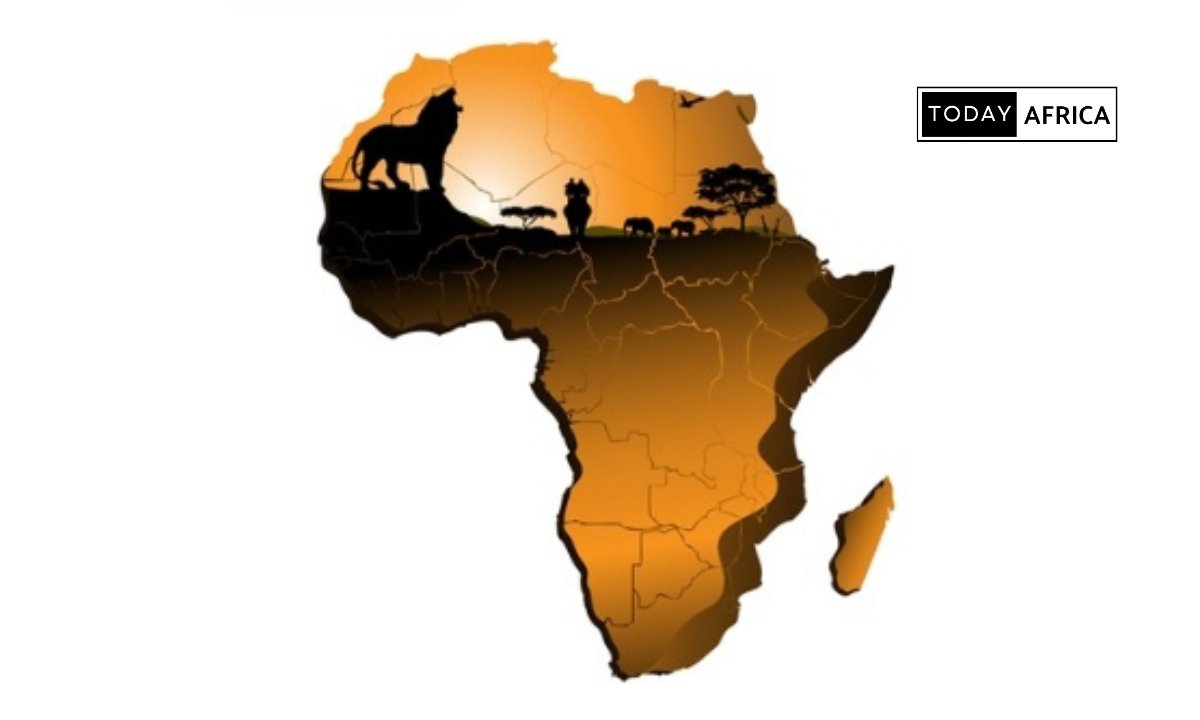Africa is sitting on a treasure chest worth trillions—yet it’s not hidden beneath the ground like gold or diamonds. It’s growing in the soil, swimming in the waters, and walking on the land.
That treasure is agribusiness.
With 60% of the world’s uncultivated arable land, a youthful workforce, a rising middle class, and rapid urbanization driving food demand, the continent is on the brink of a massive agricultural boom.
But Agribusiness is no longer just about farming—it’s about processing, packaging, distribution, export, technology integration, and creating entire value chains that fuel economic growth.
In this post, we’ll explore why agribusiness is Africa’s next big goldmine, uncovering the key drivers, opportunities, and strategies you can leverage to tap into this booming sector.
Africa’s Unique Agricultural Advantage
Africa’s natural and human resources give it a competitive edge that few regions can match.
1. Fertile land and vast resources
Africa has 60% of the world’s uncultivated arable land, meaning more than half of the world’s potential new farmland lies here. Countries like Nigeria, Tanzania, and the Democratic Republic of Congo have millions of hectares capable of producing cash crops and staples. This gives Africa the potential to become the world’s breadbasket—if infrastructure and policies align to support cultivation at scale.
2. A growing and young population
Africa’s population is projected to double to 2.5 billion by 2050, with over 60% under the age of 25. This means a large, active labor force capable of driving agricultural production and innovation. Young people are also more open to using technology, which is vital for modernizing farming methods and increasing yields.
3. Favorable climate diversity
The continent’s wide range of climate zones—from tropical rainforests to arid deserts—allows for the cultivation of an incredible variety of crops. While Ghana and Côte d’Ivoire dominate cocoa production, Ethiopia excels in coffee, and Kenya is known for tea and horticulture exports. This diversity supports year-round farming and multiple harvest cycles.
4. Rich water resources
Major rivers like the Nile, Niger, Congo, and Zambezi, as well as freshwater lakes such as Victoria and Tanganyika, provide vast irrigation potential. Yet, only about 6% of Africa’s cultivated land is irrigated—leaving huge room for expansion and increased productivity.
5. Abundant livestock potential
Ethiopia alone has Africa’s largest livestock population, while countries like Kenya, Sudan, and Mali have rich traditions in pastoralism. With better veterinary care, feed production, and cold storage facilities, meat and dairy exports could become major revenue streams.
See Also: 17 New Trends in Food Processing in Africa This Year
Global Demand is Tilting in Africa’s Favor
Global market trends are opening doors for African agribusiness like never before.

1. Rising global food demand
According to the UN, global food demand will increase by 70% by 2050. Rapid population growth in Asia and the Middle East—regions that cannot produce enough food domestically—creates a massive export opportunity for African producers.
2. Expanding middle-class consumption in Africa
Africa’s growing middle class, projected to reach 1.1 billion people by 2030, is fueling demand for higher-quality, processed, and packaged foods. Urban consumers want convenience foods, dairy products, and meat—creating value chain opportunities in food processing and retail.
3. Export opportunities beyond food
Agriculture supplies raw materials for textiles, cosmetics, pharmaceuticals, and biofuels. West African cotton feeds the global fashion industry, Ghana’s shea butter is a staple in skincare products worldwide, and Madagascar’s vanilla is highly sought after in gourmet foods and cosmetics.
4. Demand for organic and specialty products
Consumers in Europe and North America are willing to pay premiums for organic and fair-trade products. African producers of organic coffee, cocoa, and tea can position themselves in these high-value niches with proper certification and marketing.
5. Strategic proximity to global markets
Africa’s location offers shipping advantages to Europe, the Middle East, and Asia. Shorter transport times mean fresher products and lower logistics costs compared to competitors from Latin America or Asia.
Opportunities Across the Agribusiness Value Chain
Agribusiness in Africa isn’t limited to farming—there are opportunities at every stage from production to retail.
1. Primary production (farming)
Crop farming, livestock, aquaculture, and horticulture are the foundations. Mechanization, improved seeds, and better farming practices can dramatically increase yields. For example, maize yields in sub-Saharan Africa average 2 tons per hectare, compared to over 10 tons in developed countries—showing the scope for growth.
2. Processing and value addition
Processing raw crops into finished products increases profitability. Cocoa beans exported raw may fetch $2,500 per ton, but processed chocolate can sell for several times more. Local processing also creates jobs and reduces import dependency.
3. Storage and preservation solutions
Post-harvest losses can reach 30–50% due to inadequate storage. Cold rooms, silos, and climate-controlled warehouses could significantly reduce waste and increase farmer incomes.
4. Logistics and distribution networks
Efficient transportation systems and digital marketplaces like Twiga Foods (Kenya) connect farmers directly to buyers, cutting out middlemen and improving profit margins.
5. Agritourism and farm-based experiences
Agritourism—farm tours, vineyard visits, and eco-lodges—offers a way to diversify income. Countries like South Africa already attract thousands of tourists to wine estates, while similar opportunities exist for coffee, tea, and cocoa farms in other regions.
See Also: Top 25 Food Startups in Africa This Year
Technology is Transforming African Agribusiness
The digital revolution is reshaping how African farmers grow, sell, and finance their products.
Precision farming and smart tools
GPS-guided tractors, drones for monitoring crop health, and soil sensors are helping farmers make data-driven decisions. These technologies optimize inputs like water and fertilizer, reducing waste and boosting yields.
Digital advisory services
Platforms like iCow in Kenya send farmers SMS updates on animal health, crop care, and market prices. This type of localized advice bridges the knowledge gap for rural farmers.
Mobile money and agrifinance
Mobile payment systems like M-Pesa enable farmers to receive payments instantly, access microloans, and even pay suppliers without handling cash.
E-commerce for agricultural products
Online marketplaces like Livestocx connect farmers to urban buyers, supermarkets, and exporters directly—reducing dependence on unpredictable local markets.
Blockchain for supply chain transparency
Blockchain can verify the origin and quality of agricultural products. For example, a buyer in Germany can scan a QR code and trace their coffee back to the exact farm in Ethiopia, increasing trust and potential prices.
Challenges that Must be Overcome
Infrastructure deficits
Without good roads, electricity, and storage facilities, even the best harvests can’t reach markets efficiently. Rural infrastructure investment is critical.
Policy and regulatory uncertainty
Sudden policy changes—like export bans—can scare away investors. Clear, consistent regulations encourage long-term investment.
Limited access to finance
Over 80% of African farmers are smallholders, often without collateral for loans. Expanding microfinance and crop insurance is essential.
Climate change and environmental risks
Erratic rainfall, floods, and droughts are becoming more common. Climate-smart agriculture—drought-resistant seeds, efficient irrigation—will be key.
Skills gaps and low farmer education
Training programs and agricultural extension services can help farmers adopt modern practices, increasing both yields and income.
Read Also: Top 10 Fastest-Growing Industries for African Entrepreneurs
Why Now is the Best Time to Invest in African Agribusiness

1. Supportive government initiatives
Many governments are offering subsidies, credit facilities, and training programs to boost production. For instance, Nigeria’s Anchor Borrowers’ Programme links smallholder farmers to large-scale processors.
2. Rising investor and donor interest
Institutions like the African Development Bank are funding large-scale agricultural projects. This influx of capital opens doors for public-private partnerships.
3. Technological leapfrogging
African farmers can skip older, inefficient farming techniques and adopt modern methods from the start—just like mobile phones leapfrogged landlines.
4. Urbanization driving food demand
Africa’s urban population is growing at 4% annually, increasing demand for consistent, high-quality food supplies.
5. Untapped regional trade opportunities
The African Continental Free Trade Area (AfCFTA) creates a single market of 1.3 billion people, reducing tariffs and encouraging cross-border trade in agricultural products.
Conclusion
Agribusiness is not just another economic sector in Africa—it is the continent’s sleeping giant, finally waking up.
With vast arable land, a booming population, favorable climate conditions, and increasing global demand for food and agricultural products, Africa holds the keys to the next big global agricultural revolution.
From smallholder farmers adopting modern techniques to agritech startups transforming value chains, the opportunities are limitless.
We’ve seen how investments in infrastructure, technology, processing, and export strategies can unlock billions in revenue while creating millions of jobs.
The reasons why agribusiness is Africa’s next big goldmine are clear:
- Abundant natural resources waiting to be harnessed.
- A young, energetic workforce ready to innovate.
- Rising domestic and international demand for African produce.
- Government and private sector initiatives align to support growth.
If African entrepreneurs, investors, and policymakers work together to maximize these opportunities, agribusiness could rival—and even surpass—traditional sectors like oil and mining in economic importance.
FAQs: Why Agribusiness is Africa’s Next Big Goldmine
Why is Africa’s agribusiness sector considered a goldmine?
It has vast uncultivated land, a favorable climate, abundant labor, and growing demand both locally and globally.
Which African countries have the most agribusiness potential?
Nigeria, Kenya, Ethiopia, Ghana, Côte d’Ivoire, Tanzania, and Zambia, each with unique strengths in different crops and livestock.
What are the main challenges facing African agribusiness?
- Infrastructure gaps
- Policy instability
- Limited financing
- Climate change
- Low farmer education.
How can technology improve African agriculture?
Through precision farming, mobile-based finance, blockchain supply chain tracking, and e-commerce platforms for direct sales.
Is agribusiness only for large-scale investors?
No. Opportunities exist for smallholders, SMEs, cooperatives, and even tourism operators in agricultural value chains.
Leave a comment and follow us on social media for more tips:
- Facebook: Today Africa
- Instagram: Today Africa
- Twitter: Today Africa
- LinkedIn: Today Africa
- YouTube: Today Africa Studio
















